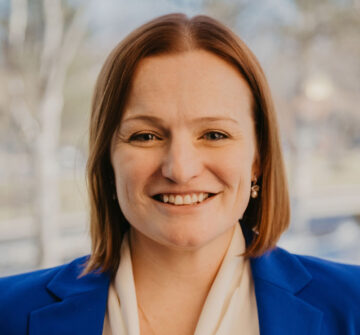Massachusetts Life Sciences Center awards three separate investments of $250,000 convertible notes to early-stage life sciences companies
Worcester— Today, the Baker-Polito Administration announced $750,000 in funding for three Worcester-based early-stage, life sciences companies. The funding, awarded through the Massachusetts Life Sciences Center’s (MLSC) Seed Fund, comes in the form of three separate investments of $250,000 convertible notes. Massachusetts Lieutenant Governor Karyn Polito announced the funding at a virtual ribbon cutting ceremony for the expansion of the Massachusetts Biomedical Initiatives, where two of three awardee companies are located.
“These investments build on our administration’s commitment to ensuring that businesses and communities across the Commonwealth grow and share in the benefits of our thriving life sciences sector,” said Lt. Governor Karyn Polito. “We are proud to fund strategic assets like the Massachusetts Biomedical Initiatives facilities in Worcester, which are supporting advances in human health, accelerating innovation and expanding opportunity.”
“Support for entrepreneurs and startups is essential to the health and vitality of our innovation economy, especially as we look towards recovery,” said Massachusetts Secretary of Housing & Economic Development Mike Kennealy, who also serves as Co-Chair of the MLSC’s Board of Directors. “While other states are focused solely on keeping their major metropolitan areas thriving, our Commonwealth’s distinct advantage remains being able to leverage the people, places, and partnerships to look beyond Greater Boston and build out regional clusters of innovation to support important sectors like the life sciences in Worcester.”
“The Baker-Polito Administration is continuing to invest in the Massachusetts innovation economy and support the entrepreneurs and early-stage companies who are helping to drive advancements,” said Secretary of Administration and Finance Michael J. Heffernan, who also serves as MLSC Board Co-Chair. “The entrepreneurial and investment communities continue to find opportunity across our Commonwealth, spurring job creation and game-changing technological and scientific breakthroughs.”
Awardees of the MLSC’s Seed Fund include:
149 Medical: Company developing the first non-invasive medical device able to measure real-time brain hemodynamics in preterm newborns. The device aims to predict and then prevent the onset of brain damage in preterm infants, by providing early, actionable alerts and continuous feedback for early intervention and treatment monitoring. Follow on indications to include ischemic stroke, Alzheimer’s, concussions, and traumatic brain injury (TBI).
iVexSol: Burgeoning startup founded on a transformative next generation manufacturing technology that revolutionizes the production of lentiviral vectors (LVVs). Vectors are molecular tools that deliver genetic material into living cells to modify their biology and/or behavior, and in doing so, provide life-changing therapeutic benefits to patients. While LVVs have an outstanding safety and therapeutic record, the limited number of clinical-grade LVV manufacturers combined with the severe limitations of current production techniques has resulted in long wait times for production slots, high manufacturing costs and severe shortages for even the raw materials used to manufacture viral vectors. iVexSol’s proprietary methodology promises to lower costs and provide a robust supply of vector for CGT researchers and manufacturers, which in turn will shorten clinical development timelines and increase access for patients waiting to receive these life-changing treatments.
Nutrimedy: Digital tele-therapeutics startup that is focused on the next generation of evidence-based clinical nutrition. By automating existing medical nutrition therapy (MNT) workflows, Nutrimedy is giving patients who require complex dietary modifications a real-time superpower so can they easily answer the question “Can I eat this?” As a B2B solution, Nutrimedy partners with providers, biotech, medtech, and health insurance organizations to improve patient access to expert nutrition care. Nutrimedy is specifically designed for healthcare settings and is already being utilized in areas such as IBD, short bowel syndrome, oncology, and end-stage renal disease.
“A key measure of success for the Center and our partners is creating targeted opportunities for the investment community to follow the MLSC’s lead and exponentially increase the amount of risk capital invested in these regions,” said MLSC Interim President & CEO Damon Cox. “Many regions in Massachusetts are already home to a verdant presence of major research universities, medical centers, and incubators. We are strong believers that we must collectively work together to match the presence of these stellar anchor institutions with opportunities for early-stage funding that can too often be concentrated within the Greater Boston area.”
The MLSC’s Seed Fund supports the development of innovative, promising life sciences start-ups in targeted geographies across Massachusetts. With an initial focus on Lowell, Worcester, Springfield, Amherst, and Pittsfield, the MLSC has now also expanded the program to Beverly, Mansfield, and North Adams.
“New ideas come to mind anywhere, and not at any particular time, but innovative startups need fertile ground and support to develop these ideas into striving enterprises that benefit the commonwealth,” said Rustam Yukhananov, who serves as one of the founders and president of the Mansfield Bio-Incubator. The incubator is a recent recipient of MLSC capital funding and is in the process of doubling its laboratory space by the end of 2021 with plans to develop its entire 64 acres as a biotech campus. “Life science companies need the sophisticated infrastructure of laboratories, specialized suppliers, service providers, and investors with high-risk tolerance. The Massachusetts Life Science Center expands all these conditions beyond Kendall Square to other towns in Massachusetts by providing seed grants for life science startups. We are glad that the members of the Mansfield Bio-Incubator now have access to seed funding provided by MLSC.”
“The importance of supporting a robust entrepreneurial community in Western Massachusetts cannot be understated,” said Lever Head of Innovation Brent Filson. “Successful startups accelerate economic growth by creating quality jobs and pulling capital and revenues to our region. An essential element to growing our entrepreneurial ecosystem is access to seed funding, which is why we are thrilled about MLSC’s new Seed Fund program and its focus on Western Massachusetts.”
“With its diversely talented local population, affordable commercial facilities, and robust science and technology community, the North Shore is a very attractive place to locate life science firms of all sizes,” said Cummings Properties president Eric Anderson. “In addition to working with many large national and multinational corporations, we have a reputation for working with entrepreneurs and startups. Experience has shown that by working closely with the founders of these firms through the various stages of their growth, we are often able to forge strong relationships that help keep the companies local, frequently within the same community where they started. Given the strength of Massachusetts’ life science industry, Cummings continues to develop new lab-ready space in Beverly at a time when so many property developers are scaling back on building projects.”
On a rolling basis, companies are able to apply for up to $250,000 convertible notes to support novel innovations in all life sciences sectors, including Diagnostics, Digital Health/Bioinformatics, Medical Devices, MedTech, and Therapeutics. Early-stage life science companies that have yet to raise their first priced round are strongly encouraged to apply for this program. In 2018, the MLSC applied for and received a $300,000 federal grant by the U.S. Department of Commerce’s Office of Innovation and Entrepreneurship for the launch, scale, and formation of this cluster-focused seed fund. The MLSC’s Board of Directors authorized a matching $300,000 from the Center’s Investment Fund to support operational costs of the Seed Fund.


